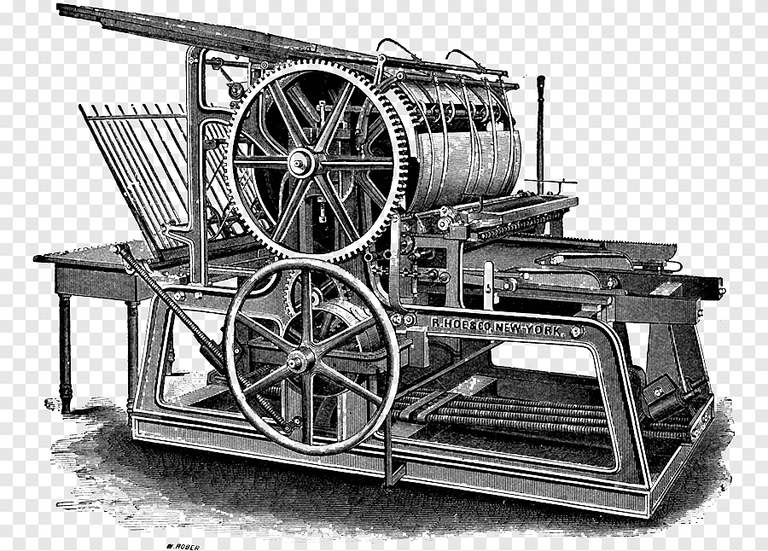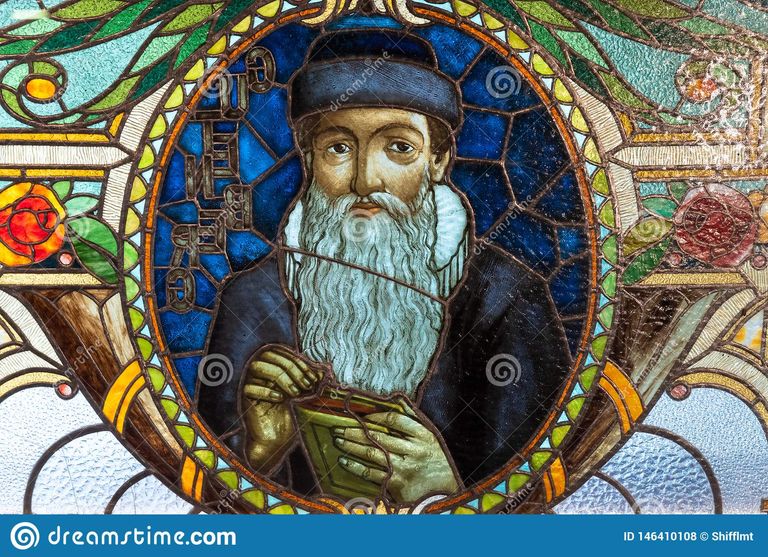Johann Gutenberg is generally considered the inventor of the printing press. What he actually did was develop the first method of using moving typeface and the printing press in such a way that a wide variety of written materials could be printed quickly and precisely.
No invention jumps out of one's mind, not even the printing press. Seals and seals whose workmanship adheres to the same principle as block printing were known in China centuries before Gutenberg was born and evidence shows that in 868 AD a printed book had been found in China. A similar process was known to people in Europe before Gutenberg. Block printing allows printing of many copies of a particular book. This process had one drawback: because a new and complete set of wood or metal chips had to be made for a book, it was by itself impractical to print a wide variety of books.
It is often said that Gutenberg's most important contribution was his discovery of movable type. In this case, something similar was found in China around the middle of the 11th century AD by a man named Pi Sheng. The original printed letters were made of some kind of imperishable earth. Meanwhile some Chinese and Koreans had already made a series of improvements and were doing well before Gutenberg. Koreans used metal typefaces, and the Korean government helped a smelter to produce printed typefaces in the early 15th century CE. Apart from all this, it would be wrong to think of Pi Sheng as a special influence. At the first level, Europe did not learn the mobile typeface from China but on its own creation. Second, printing using movable type was not commonly used in China itself until very recently when modern printing procedures were learned from the West.
There are four essential components of the modern way of printing. First, moving print letters, here are some procedures for setting and placing established letters. Second, the printing press itself. Third, compatible ink to produce prints. Fourth, materials such as paper to print them. Paper was invented in China many years before the printing press by Ts'ai Lun and its use was widespread in Europe before Gutenberg's time. That's the only element of the ready-made Gutenberg print process. Although other people have done various kinds of work on each of these components, Gutenberg has managed to make various improvements. For example, he developed metal alloys for printed letters; pouring liquid metal for block printing letters accurately and thoroughly; printing ink oil as well as the press required for printing.

Source
But Gutenberg's overall contribution was greater than anyone else's when it came to the refinement of the printing press. Its importance mainly lies in its success in combining all elements of the printing press into an effective and productive system. Therefore the printing press, in contrast to other previous inventions, was the main process of large-scale production. A rifle by itself is much more effective than a bow and arrow. A printed book is not much different from a handwritten book. The advantage of the printing press thus lies in its large-scale production. What Gutenberg has developed is not as big as a tool or invention of reason, and not just a series of improvements, but a complete production process.
Our biographical repertoire of Gutenberg is very scarce, we only know that he was born in Germany around 1400 AD in the city of Mainz. His contribution to the art of printing took place in the mid-century and his finest work--the so-called Gutenberg Gospel--was printed in Mainz around 1454 AD. Strangely enough, Gutenberg's name is never listed in any book, not even in Gutenberg's Gospel, though it is clear he himself printed with his invention.
Gutenberg never seemed a businessman; he really had no desire to make money from his inventions. He was frequently involved with court charges which resulted in him having to pay a ransom in the form of his equipment to his friend Johann Fust. Gutenberg died in 1468 in the city of Mainz.
One of Gutenberg's influences on world history can be advantageous if we relate it to developments in China and Europe in later times. By the time Gutenberg was born, the two regions were almost equally developed. But after Gutenberg invented the European printing press, progressed rapidly, while China, which still used block printing, developed rather slowly. It might be an exaggeration to say that the development of printing was the only factor that caused the difference in the level of progress, but the discovery clearly had an important meaning that could not be ruled out.
It is also important to note that only three of the people on this list lived in the five centuries before Gutenberg while sixty-seven lived in the five centuries after Gutenberg's death. This shows how significant Gutenberg's discovery - it can even be called an important discovery - in terms of pulling the trigger for the modern revolution of progress.
Alexander Graham Bell may not even be born into the world but the telephone was invented at the same time in history. Likewise can be taken as an example of other inventions, without Gutenberg, the invention of the modern printing press will be delayed by several generations, and judging by the magnitude of the impact it has, Gutenberg can no doubt be honored to be listed in the order list of this book.

Hi, @zahrullb,
Thank you for your contribution to the Blurt ecosystem.
Your post was picked for curation by @onchain-curator.
Please consider voting for our Upkeep Proposal by Symbionts.
Thank you very much for the support @ecosynthesizer, hopefully in the future this blurt will be the best in its time